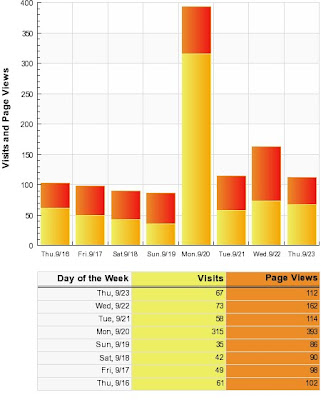Who Will be the "Google" of Wall Street?
Anyone else feeling a sense of
deja vu here?
The last time a corporation -- U.S. or otherwise -- inspired as much sheer disdain, disgust, and outright hostility as Goldman Sachs does now was Microsoft almost 20 years ago.
At the time, Microsoft was beginning to practically gush money (
hmm, reminds me of another company) from its monopoly on PC operating software (
illegal monopoly . . hmm, more deja vu).
Lifted from an inattentive IBM for a veritable song, DOS, the original PC operating software, gave Bill Gates unparalleled power and control over the PC desktop -- and the burgeoning PC market.
Gates shrewdly -- and ruthlessly -- wielded that power.
By 1999, he'd amassed the biggest fortune the world has ever seen: at the peak of the tech bubble a decade ago, Gates was worth something north of $100 billion. Even though Microsoft's stock is more than 50% lower today, Gates is still the richest man on the planet.
The U.S. v. MicrosoftUnfortunately, what was (very) good for Gates and Microsoft was manifestly bad for everyone else.
When it became increasingly obvious that Microsoft's growing monopoly power threatened to smother the PC business -- and perhaps even tech innovation generally -- the U.S. Justice Department finally acted, suing the company for multiple violations of U.S. antitrust law.
Over the next decade, the government and Microsoft basically fought to a draw.
Given that Microsoft had more lawyers working on the case than the Justice Department did -- and that Microsoft spent millions lobbying to have the Justice Department's budget gutted in the middle of the litigation -- that was no small accomplishment for the government lawyers!
Notwithstanding the murky legal outcome, there's a case to be made that the government's lawsuit
did achieve its ultimate aims.
While Microsoft's de-fanging (sort of) came too late to save Netscape, it arguably bought Google enough time to mature beyond infancy.
By then, it was too strong to be destroyed, and too far ahead to be caught.
Will Goldman Sachs suffer a similar fate?
It's certainly possible that I read too many blogs, but I don't think I'm wrong that there is a lot of latent anger in the country at the moment -- over the economy, over the housing market, over the direction of the country generally.
All it really needs is a lightning rod.
If things continue on their current course, the leading candidate to be that lightning rod is . . .
Wall Street.
Next for Goldman Sachs: A Legal Quagmire?Given how powerful the financial industry is, it's likely too much to hope to see it vanquished outright.
However, it's easy to imagine public anger at Goldman Sachs morphing into a spate of proposed legislation, lawsuits, and the like that -- over a period of years -- sap the company's energy and coffers.
And perhaps most importantly, distract management.
There's no way to prove that a focused Microsoft -- vs. one distracted by the government's antitrust suit -- would have captured Google's market before Google did (who knows, Microsoft still might).
But it couldn't have helped.
It's equally plausible that a just-so-slightly chastened Microsoft refrained from pouncing on Google, knowing that it was under such public scrutiny.
It's easy to imagine Goldman Sachs suffering a similar fate.
If so, that means Goldman Sachs' "Google" is already out there, somewhere, plotting its next move . . .
P.S.: even Bill Gates acknowledges the uncanny parallels between Microsoft and Goldman Sachs, commenting once that Microsoft's biggest competitor for "talent" was Goldman Sachs.
 PointCast . . . Yahoo! . . . Groupon??
PointCast . . . Yahoo! . . . Groupon??







